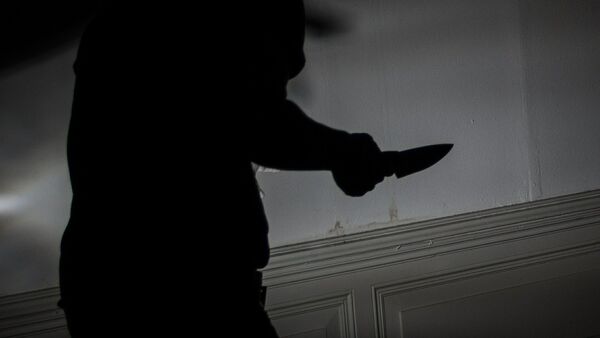The data shows that the number of pupils caught in possession of knives in schools has risen for a fifth successive year, with 299 students found with knives in 2016, compared to 236 in 2015 and 203 in 2014. In 2011, there were 152 children caught carrying knives in schools.
These figures were released shortly after a young 15-year-old boy named Quamari Barnes, was killed outside his school in London in January 2017.
"Quamari Barnes, rest in peace, the most beautiful, funny service I have ever witnessed." https://t.co/ymidbBJDmf
— GetWestLondon (@GetWestLondon) 13 March 2017
Figures released by the Police and Crime Committee in September 2016, have also shown that the number of young people caught up in violent crime in London had reached its highest level in four years.
Violent crimes, which involve knives, guns, sexual assaults, robbery, or all four, have risen year on year, increasing four percent between 2015 and 2016 — and by 20 percent between 2012 and 2013.
More than a quarter of all victims are young women or girls and it appears knives have become — and are increasingly deployed as the weapon of choice.
Darryl Laycock, a fully rehabilitated ex-offender, spoke to Sputnik about why young people have decided to protect themselves with a knife and the solutions to the problem.
Mr. Laycock, who was released from prison on March 11, 2011, was shot on three occasions, which resulted in him receiving over 20 bullet wounds. He was also stabbed seven times.
"Most young people carry knives for protection. There's no mandatory sentence for carrying a knife, there is for having a gun. So that means someone caught carrying a knife won't face immediate jail," Mr. Laycock told Sputnik.
He also highlights that some of the young people carrying weapons are not always from poorer or deprived backgrounds.
"Some of the kids carrying a knife have come from good backgrounds, their mums drive around in a Mercedes, they are well-off kids," Mr. Laycock added.
He did add however, that carrying a knife comes down to status — these young people get noticed by others, if they have a weapon on them.
"The solution to knife crime and its impact on young people is education… The police have used enforcement, they have sent them to jail, but they [the police] know that prevention is better then a cure.
"I tell these kids, 'it's your mum who will cry for you, not your mates if you commit murder you get only one sentence.' People need to think more about their mums and family than they do about their friends," Mr. Laycock told Sputnik.
"I ask people where's the safest place to stab someone and they say the buttocks, but there isn't a safe place. You have arteries all over your body. My mate was stabbed in his ankle in 1997 and he died," he added.
Free anti knife crime programmes for Islington children and young people! Available https://t.co/UM1wxjG9zj #stopstabbings pic.twitter.com/NxD8fcLOOO
— Let's Get Talking (@letsget_talking) 25 March 2017
Laycock's views were echoed by Patrick Green, trust manager at the Ben Kinsella Trust, an organization battling knife crime. Mr. Green said that knife crime is driven by fear, that young people are afraid of getting hurt.
Pray for London — young people and knife crime-join us, Fri 20th Jan 11-4pm, Lewisham Tabernacle SE13 @weareROC pic.twitter.com/emZXQ87PWc
— Paul Wilson (@paulwil20196589) 13 January 2017
"The underlying reason comes down to fear, young people are very fearful of becoming victims of crime. They see it as a way of protecting themselves and not becoming a victim in the future. Others do it to make themselves more approachable.
"Carrying a knife will ruin your life, young people haven't taken on the full magnitude of this and they don't seem to be having those conversations elsewhere, they haven't had the investment of adults sitting down with them," Mr. Green told Sputnik.
Profile on George Kinsella @kinsellatrust: 'Our lives have never been the same. I still find it difficult to sleep' https://t.co/Om8n9Wj76I pic.twitter.com/SX0IL5P8YR
— Islington Gazette (@islingtongztte) 27 March 2017
Mr. Green said that the only solution is education, creating a safe space where young people can come together and discuss the issues of knife crime without feeling shame.
"Given the right information, young people can make the right decisions and in austerity Britain, there has been too many cuts… Young people are feeling the impact of that," Mr. Green concluded.
— Ben Kinsella Trust (@kinsellatrust) 2 March 2017
To find out more about education and decreasing knife crime numbers the Ben Kinsella Trust offers support and help to schools and youth centers in need of assistance.




